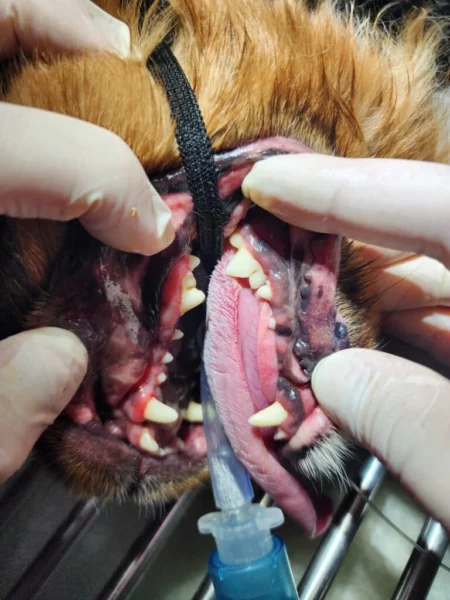Oral health is a vital yet often overlooked aspect of your pet’s overall well-being. Regular dental care not only ensures a sparkling smile but also prevents serious health issues such as gum disease, tooth loss, and infections that can affect other organs.
As responsible pet owners, understanding the role of dental care in your pet’s health is crucial. Veterinary clinics commonly provide various dental treatments that address both preventive care and existing oral health issues.
For further insights into the importance of pet dental care and the types of treatments typically available, you can explore this resource on pet dental care services.
However, when it comes to financing these essential services, many pet owners wonder: does pet insurance cover pet dental treatments?
In this article, we’ll explore the nuances of pet insurance policies regarding dental treatments, helping you make informed decisions for your furry friend’s health and your peace of mind.
Why is Pet Dental Care So Important?

DOral health is essential to your pet’s overall wellbeing, yet it’s often overlooked by many pet owners. Regular dental care not only keeps your pet’s teeth healthy but also helps prevent serious conditions like gum disease, tooth loss, and infections that could affect other parts of the body.
According to the Australian Veterinary Association (AVA), dental disease is among the most common issues diagnosed in pets, with four out of five dogs and cats over the age of three showing signs of dental problems.
Regular dental care helps detect problems early, reduces discomfort, and prevents costly treatments down the line. By prioritizing routine check-ups and professional cleanings, you significantly improve your pet’s quality of life while minimizing the risk of severe health complications.
But what if unexpected dental issues arise—will your pet insurance cover the costs? Let’s find out.
Does Pet Insurance Typically Cover Dental Treatment?
Yes, but it depends.
Pet insurance policies in Australia commonly differ in how they handle dental coverage. Typically, insurers distinguish between dental treatments resulting from accidents—like broken teeth or injuries—and routine dental care or cleanings.
The good news is that most insurance providers cover dental issues caused by unexpected accidents or injuries. For instance, if your pet breaks a tooth or suffers a dental injury, your insurance usually has you covered. Additionally, some providers, like Trupanion, clearly specify coverage for dental illnesses when certain conditions are met.
Routine procedures, such as regular teeth cleaning or general check-ups, typically require additional wellness packages. These packages are optional but can offer great value by making regular preventive dental care affordable and easy to budget for.
It’s helpful to review your policy carefully, so you can fully understand and maximize your coverage benefits.
Types of Pet Dental Coverage
When exploring pet dental coverage, you’ll typically encounter three categories: accident and injury cover, illness-related dental cover, and routine preventative care. Here’s a clear breakdown of what each one means for you and your pet.
Accident and Injury Cover
This type of coverage is commonly included in most pet insurance policies. It covers unexpected dental emergencies, such as fractured or broken teeth from playing or trauma. For instance, if your pet accidentally chips or breaks a tooth, your insurer will usually help cover the necessary treatments, such as tooth extraction or surgery.
Illness-Related Dental Cover
Coverage for dental illnesses often includes conditions such as gingivitis, periodontal disease, or infections. However, it’s important to understand that coverage for these illnesses isn’t automatic with every insurer.
Some providers require proof of regular dental check-ups and preventative care performed by a veterinarian to qualify for coverage. Regular check-ups ensure early detection and can also help keep your insurance eligibility intact.
Routine and Preventative Dental Care
Routine dental procedures such as professional teeth cleaning, scaling, or regular dental exams usually aren’t included in standard pet insurance policies. However, many insurers offer optional wellness or preventative care plans that cover these routine treatments.
Choosing a wellness plan can provide significant benefits by making preventive care more affordable and helping to maintain your pet’s oral health year-round.
Knowing the differences between these coverage types can help you pick the best pet insurance policy to suit your needs and budget.
Common Exclusions in Pet Dental Insurance
While pet insurance can greatly help manage dental expenses, it’s important to know that there are certain conditions typically excluded from coverage. Understanding these common exclusions helps prevent surprises and keeps you well-prepared.
Pre-existing Conditions
Most insurers exclude dental issues that existed before your policy started. For example, if your pet had already been diagnosed with periodontal disease prior to getting insurance, treatments related to that condition typically won’t be covered.
Cosmetic Dental Procedures
Pet insurance generally doesn’t cover cosmetic procedures, such as teeth whitening or elective orthodontics to correct minor misalignments. Insurance primarily focuses on medically necessary treatments that affect your pet’s health and quality of life.
Routine Cleanings Without a Wellness Plan
Standard pet insurance policies usually exclude routine procedures like regular dental cleanings and scaling. For instance, annual teeth cleaning to prevent tartar buildup generally isn’t covered unless you’ve specifically added a wellness or preventive care package to your policy.
Knowing these exclusions upfront allows you to choose your coverage wisely and set realistic expectations about your pet’s dental health expenses.
How Much Does Pet Dental Treatment Cost?
Pet dental treatment costs in Australia can vary depending on the type and complexity of the procedure. Here’s a general overview to help you budget appropriately:
- Routine teeth cleaning and scaling: Typically between $200 and $400.
- Tooth extraction: Costs generally range from $300 to over $800, depending on complexity and number of teeth affected.
- Advanced dental surgery or treatment: Procedures requiring anesthesia, X-rays, or extensive work often range from $1,000 up to $2,500 or more.
Given these potential costs, pet insurance can offer tremendous value. With coverage in place, unexpected dental issues become more affordable and easier to manage, helping you avoid difficult financial decisions in an emergency.
How to Choose the Right Pet Insurance for Dental Care
Selecting the right pet insurance to cover your pet’s dental needs involves carefully evaluating your options. Here’s practical advice to guide you in choosing the best policy:
- Read the policy documents carefully. Look for clear definitions of what is covered and what isn’t, paying close attention to terms related to dental procedures.
- Understand annual limits, deductibles, waiting periods, and reimbursement rates. Policies differ in how much they’ll reimburse, what you’ll pay upfront, and how long you’ll need to wait before certain coverage kicks in.
- Consider optional wellness plans. Many insurers offer add-on packages that include routine dental care, such as cleanings and preventive treatments. These optional plans can help you budget effectively and maintain your pet’s oral health year-round.
Taking these steps ensures you select a policy that suits both your pet’s dental needs and your financial comfort.
Tips for Maintaining Good Pet Dental Health
Regular Teeth Brushing: Aim to brush your pet’s teeth daily or at least a few times a week using pet-friendly toothpaste. Regular brushing significantly reduces tartar buildup and prevents gum disease.
- Read the policy documents carefully. Look for clear definitions of what is covered and what isn’t, paying close attention to terms related to dental procedures.
- Dental Treats and Chew Toys:
Specially formulated dental treats and chew toys can help reduce plaque and maintain healthy gums, all while keeping your pet entertained. - Consider optional wellness plans. Many insurers offer add-on packages that include routine dental care, such as cleanings and preventive treatments. These optional plans can help you budget effectively and maintain your pet’s oral health year-round.
By integrating these simple tips into your pet-care routine, you’ll support your pet’s oral health and overall wellbeing.
Take Charge of Your Pet’s Dental Care Today
Pet dental care is essential to your furry friend’s overall health and comfort. Dental coverage varies widely between pet insurance providers, so carefully choosing the right policy is crucial.
Proactively maintaining your pet’s oral hygiene, understanding your insurance coverage, and scheduling regular veterinary check-ups can help prevent health risks and unexpected costs.
For comprehensive dental care services, consider Centenary Vets, where a range of treatments is offered to keep your pet’s smile healthy.
By staying informed and proactive, you’ll ensure your pet receives the best dental care possible, safeguarding their comfort and your peace of mind.



